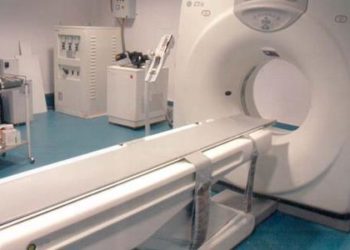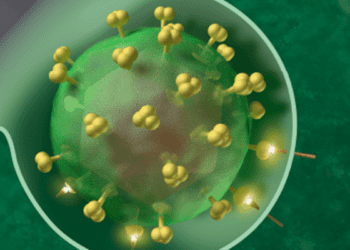Prenatal vitamin D supplementation does not reduce incidence of asthma
1. Among children at high-risk for developing asthma, this randomized control study found that additional maternal vitamin D supplementation in the prenatal period did not significantly decrease the incidence of asthma and recurrent wheezing.
2. Vitamin D levels were increased in the additionally-supplemented pregnant women, and the incidence of early asthma or wheezing was lower in their children, however this result failed to reach statistical significance.
Evidence Rating Level: 1 (Excellent)
Study Rundown: Wheezing illnesses can begin in the first few weeks of life, suggesting that prenatal determinants may influence their occurrence. With its influence on the developing lung and immune system, maternal vitamin D levels have recently been postulated as an important factor in these illnesses. The authors of this study investigated the benefits of high-level vitamin D supplementation compared with regular supplementation in pregnant women at high-risk of having children with wheezing illnesses. Overall, this study found that maternal vitamin D levels did increase among women in the additional supplementation group, however, the additional vitamin D did not significantly decrease the incidence of wheezing illnesses in their children.
Strengths of this study include its rigorous design and high follow-up rates. The results of this study are limited by its size—it may have been underpowered—, generalizability—involving only high-risk populations— and issues related to timing of the treatment. Earlier initiation of vitamin D supplementation could theoretically affect the results, since the lungs typically start developing around the 4th week of gestation whereas this study only began administering vitamin D supplementation at 14 weeks. Overall, further studies are needed to better characterize the effects of additional vitamin D supplementation on the development of early asthma and wheezing.
Click to read the study, published today in JAMA
Relevant Reading: Vitamin D deficiency as a risk factor for childhood allergic disease and asthma
In-Depth [randomized controlled trial]: A total of 876 women were enrolled in this double-blinded, randomized controlled trial from 3 centers in the United States. Participants were randomized to receive either high-level supplementation of vitamin D (i.e., 4400 IU daily of vitamin D, n = 440) or regular supplementation (i.e., 400 IU daily of vitamin D, n = 436). The main outcomes measured were the rates of asthma or recurrent wheezing diagnosed within the first 3 years of the child’s life (as assessed by a questionnaire given to parents every three months), and the level of maternal 25-hydroxy vitamin D during the third trimester of pregnancy. There was a significant increase in the level of maternal 25-hydroxy vitamin D in the 4400 IU group (mean 39.2 ng/mL) compared to the 400 IU group (mean 26.8 ng/mL; mean difference 12.4; 95%CI 10.5-14.3 ng/mL, p < 0.001). The percentage of women who achieved 25-hydroxy vitamin D levels above 30 ng/mL at their third trimester was also significantly greater in the 4400 IU group. Through estimation analysis, the 3-year incidence of asthma or recurrent wheezing in the infants was 24.3% in the 4400 IU supplement group vs. 30.4% in the 400 IU supplement group. This reduction of 6.1% was not statistically significant (p = 0.051).
Image: CC/Wiki
©2016 2 Minute Medicine, Inc. All rights reserved. No works may be reproduced without expressed written consent from 2 Minute Medicine, Inc. Inquire about licensing here. No article should be construed as medical advice and is not intended as such by the authors or by 2 Minute Medicine, Inc.









